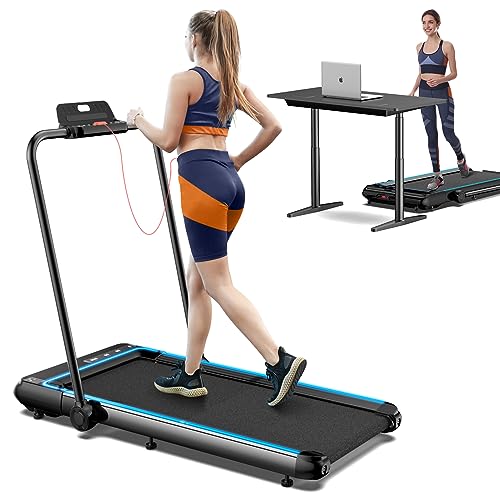What Is The Reason? Walking Machine Is Fast Increasing To Be The Hot Trend For 2024
The Walking Machine: A Comprehensive Guide to Your Fitness Companion
In today's busy world, where time is a high-end, preserving a consistent workout routine can be a challenge. For lots of, a walking machine— typically called a treadmill— acts as an ideal fitness companion. This article offers an extensive take a look at walking machines, including their benefits, types, upkeep pointers, and often asked questions.
Why Choose a Walking Machine?
Walking machines provide a practical and reliable method to include cardiovascular exercise into every day life. Here are a number of essential benefits:
- Convenience: Walking machines permit people to exercise anytime, despite weather condition conditions or time constraints. They are perfect for busy schedules.
- Flexibility: Users can stroll, jog, or perform at their own speed and strength.
- Security: Walking machines present a lower threat of injury compared to outdoor walking or running, especially for novices or those recovering from injuries.
- Tracking Progress: Many treadmills come with built-in monitors that track metrics like speed, distance, and calories burned.
Types of Walking Machines
When thinking about a walking machine, it's necessary to pick the ideal type based on individual fitness objectives and area restrictions. Below are the primary kinds of walking machines:
Type
Description
Handbook Treadmills
These machines do not have a motor, and users need to walk or run to rotate the belt.
Electric Treadmills
Powered by an electric motor, permitting users to set the speed and slope effortlessly.
Folding Treadmills
Created for simple storage, these treadmills can be folded up when not in use.
Desk Treadmills
Suitable for a dual work and exercise environment, these compact machines enable walking while working.
Incline Trainers
These permit users to simulate uphill walking, boosting workout strength and calorie burn.
Picking the Right Walking Machine
Selecting the ideal walking machine can significantly affect motivation and effectiveness. Here are some factors to think about:
Key Features to Look For
- Motor Power: An effective motor guarantees a smooth and consistent workout. For occasional walkers, a 1.5 HP motor is generally sufficient; for heavier usage, try to find 3.0 HP and above.
- Belt Size: A broader and longer belt provides more area for a comfortable stride. Requirement sizes vary from 16 inches large and 50 inches long.
- Slope Options: Adjustable slope settings can simulate walking or running uphill, increasing the strength of the workout.
- Shock Absorption: Good shock absorption lowers the threat of joint injuries and enhances comfort.
- Console Features: Look for integrated exercises, heart rate displays, and connectivity features like Bluetooth for a more appealing experience.
Budget plan Considerations
Walking machines come in a large variety of costs, depending upon functions and building quality. Here's a rough budget breakdown:
Price Range
Features
Under ₤ 300
Fundamental manual or small electric treadmills with limited features.
₤ 300 – ₤ 700
Advanced electric treadmills with incline, medium power motors, and much better guarantees.
₤ 700 – ₤ 1500
Top quality electric treadmills with bigger built-in displays, substantial features, and guarantees.
₤ 1500 and above
High-end models using sophisticated technology, features, and durable construction for serious physical fitness lovers.
Maintenance Tips for Your Walking Machine
To guarantee longevity and optimum performance of a walking machine, consider the following upkeep pointers:
- Regular Cleaning: Dust and sweat can collect on the machine and the belt. Clean down the surface areas and clean the belt regularly.
- Lubrication: Depending on the model, oiling the running belt occasionally can avoid wear and tear. Inspect the maker standards for suggested lubrication schedules.
- Examination: Periodically examine the machine for loose screws or worn parts. Tighten up and change as required.
- Calibration: Occasionally, check the calibration of your machine's metrics to guarantee they offer accurate data.
- Proper Use: Follow the maker's suggestions for weight limitations and operational standards.
FAQs About Walking Machines
1. Are walking machines an excellent exercise?
Yes, walking machines offer an excellent cardiovascular workout, can help with weight-loss, and improve general health.
2. How typically should I use a walking machine?
Aim for a minimum of 150 minutes of moderate-intensity aerobic activity each week, which can easily be attained with regular sessions on a walking machine.
3. Can I slim down on a walking machine?
Yes, integrating a walking machine routine into a healthy diet can promote weight reduction, particularly if combined with periods and incline training.
4. Is it safe for senior citizens to use a walking machine?
Yes, walking machines can be safe for seniors with low-impact settings and safety functions like handrails. Nevertheless, people must talk to their doctor before beginning any exercise program.
5. What's the difference in between a treadmill and a walking machine?
The term “walking machine” generally describes a treadmill intended for walking, while “treadmill” can refer to machines utilized for numerous intensities, including running.
With their versatility and benefit, walking machines can substantially boost one's physical fitness journey. By carefully selecting the ideal type, guaranteeing appropriate maintenance, and integrating various workout methods, users can maximize their walking machine's advantages. As with verityschultz.top , consistency is crucial to achieving lasting fitness outcomes.
